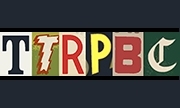The Orenda - Q1: Impressions
As often to begin these book discussions, I like to ask about general impressions. It's one thing to discuss the individual qualities of a book, but often one's overall impression can get lost in this. So - did you like it? Did the story hold your interest? Would you see the film? Why or why not?

 Help offset server costs by donating. This is totally optional. Any overages will go to library fines or new books.
Help offset server costs by donating. This is totally optional. Any overages will go to library fines or new books.

Comments
In terms of historical setting, I had no real background of knowledge to set it in, except a vague notion of being before the emergence of the US and Canada as nations. The realisation that it was (I think) closely related in time to The Last Mohican helped - I have never read this, but have seen the Daniel Day Lewis film version, which gave me some kind of visual context.
So I guess I found myself rather baffled by the book - my problems of orientation were mirrored by not really getting where the book was going. Perhaps illogically given what I have said, I wasn't particularly put off by this, in the sense that I was never at risk of giving up on the book, but I never really felt immersed with the story or gripped by the characters or their plight.
I'm not sure that I liked it - parts were too brutal to use the word "like" - but it came over as a credible account of things that might have happened. Probably better to say that I appreciated it and felt educated by it, socially at least.
Would I watch a film version? Probably not, again because of the brutality and the (apparent) relish all parties felt towards applying or experiencing torment. I could just about handle it in writing (though skimmed some sections especially where they became repetitive) but I don't think I could handle it visually.
I wasn't keen on it as a work of fiction. I think it read a set of serialised diaries of the viewpoint characters as they went about their lives. There was no dramatic thrust to the events. Instead, it read as a slice of life of a bunch of characters, brought together in a time of rapid change for everyone.
I wonder what we gained from this book that we wouldn't have gained from a history (perhaps oral history) of real people living through these events.
I liked that the Natives had a voice that was at least as strong as the Europeans, but I was unsure how authentic that voice was. I briefly looked for evidence of where the "Native viewpoint" information came from and couldn't find much.
There were bits that were too brutal for my taste, so I skipped several chapters to move over them.
I think that's a really good way to express it, and it certainly resonates with me... although I'm trying to think exactly what features of a novel are lacking. There are character development arcs, there's an overall meta-crisis threatening the ways of life of many of the characters (primary and secondary), there is a reasonably well-thought-through setting and context (even if I as a non-Canadian struggled to understand that context). But you're right - although the various characters come to decision points, those decisions don't really seem to matter. Maybe that's Boyden's method of trying to mimetically present an alternate world-view to the western one which foregrounds personal agency?
Every now and again one comes across accusations that a book is "historical faction" rather than "fiction" and maybe that is what has happened here. I don't know nearly enough about the place and time being tackled to say either way, but I wonder if Boyden has lost something in his attempt to portray a historical setting which is important to him (and presumably many other people)?
I don't understand the 'no dramatic thrust to the events' comment - the books seems full of dramatic events, many of which are brought about by the character's actions. I do agree that there's definitely a slice of life quality. I don't see that this is much different than, for example, Kim, who is also caught up in bigger events, or for that matter Charles Dicken's characters.
The question of whether a character's decisions mattered points back to whether the whole outcome was 'inevitable'. I mean, if we believe it was, then surely the character's actions didn't matter. If, on the other hand, it wasn't inevitable - then we must accept that it was their actions that brought things about.
Certainly, Bird's choice to attack the iroquois rather than hand over Snow Falls was a decision that had consequences. And it seems likely that this decision was made because Christophe lost the wampum.
A good question. I was thinking also about how this compares to War and Peace, another book with a large scale and a host of characters. Why did I enjoy War and Peace more than The Orenda? I think it's because the characters' goals are generally diffuse, long-term, and without urgency. A lot of the time they're content to drift along, dealing with what comes up. It's not often that they set out to do something on their own terms, or actions have to happen right now.
I very much did not like the book. There was no immersion point - no character I felt sympathetic with. It seemed to me everyone involved got what was coming to them, so it came off as a big morality play. It was a book about a bunch of dicks being dickish. I was extremely excited to read the book originally because I know a fair amount about the history, but it was like licking sandpaper. I got nothing out of it that was worth getting.